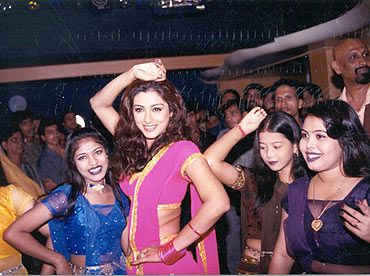 Seven years after they were banned, dance bars can again run in Maharashtra, with the Supreme Court on Tuesday upholding a Bombay high court verdict quashing the state government's order.
Seven years after they were banned, dance bars can again run in Maharashtra, with the Supreme Court on Tuesday upholding a Bombay high court verdict quashing the state government's order.
A bench comprising Chief Justice Altamas Kabir and Justice S S Nijjar also vacated its stay order on the implementation of the high court judgment.
The Maharashtra government had in 2005 brought in an amendment in the Bombay Police Act which was challenged in the high court by an association representing restaurants and bars.
The high court in 2006 had quashed the government's decision. The state government had moved the apex court against the high court's order that same year.
The Supreme Court, while admitting the government's plea, had stayed the high court's verdict.
In its plea, the state government had contended that prostitution rackets were being run under the garb of beer bars and indecent and vulgar performances, "derogatory to society" were taking place.
The government had also contended that while there were only 345 licensed dance bars, about 2500 unlicensed bars were doing business in the state.
On the other hand, various organisations representing dance bars, restaurants and bar girls had argued that the preamble of the Bombay Police (Amendment) Act, 2005, which had been struck down by the high court as unconstitutional, holds that dance performances for public amusement were permissible.
These organisations had also submitted that there were over 70,000 women engaged in dance bars and several of them had already committed suicide due to unemployment and financial crunch.
They had said that with as many as 72 per cent of the bar girls being married and 68 per cent being sole bread-earners of their family, the state government's order has rendered them jobless and had been rightly struck down as arbitrary and unconstitutional by the high court.
They had also contended that the impugned section of the Act was arbitrary and discriminatory as it permitted dance performances at places visited by the rich and well-to-do sections of the society while performances in small dance bars had been banned.
Image: A scene from the Hindi film Chandni Bar, which portrayed the lives of girls working in dance bars.






 © 2025
© 2025